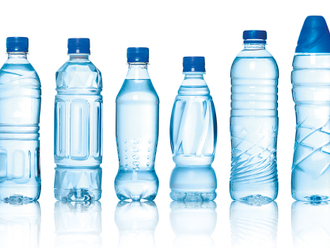
Dubai: How many times have you dropped food on the floor only to pick it up and eat it anyway?
Maybe you used the ‘five-second rule’ to tell yourself that the food is still clean.
Or you blew on it, hoping the germs would fly away. Research has shown that occasionally, eating food after it fell on the ground, or got a bit roughed up, is actually good for us.
According to researchers in Germany, Austria and Canada, exposure to germs, particularly in childhood, helps strengthen cells part of the immune system. In the scientific world, this is known as the Hygiene Hypothesis.
This hypothesis states that early contact with different microbes helps children develop their micro-biome, which consists of all the body’s viruses, bacteria, fungi and other microorganisms.
Educating the immune system
This contact educates the body’s immune system about what beneficial and harmful microorganisms are and how to respond to them.
Look at it this way: if you never grew up learning to stand up to anyone and were always cosseted and coddled and protected, what would your chances be of putting up a strong fight when you were being threatened?
Many parents today are keeping their children too clean, which is lowering their exposure to these microbes, say experts. There is an overload of precautions about what they eat, drink or where they play.
According to the United States Food and Drug Administration (FDA), excessive parental precautions could be responsible for the recent rise in infections and allergies among children.
The extent to which they are behind the rise in allergies is debatable but Dr Nishi Singh, programme chair at Dubai Women’s College and academic chair of lab medicine at the Higher Colleges of Technology, believes ‘over parenting’ and obsessing over cleanliness still does more harm than good.
When a child is in the womb, it is only exposed to its own antigens, or foreign substances.
Even here, Singh said, the immune system needs to learn how to identify and respond to these antigens so that the body does not attack its own tissues.
Preparing for the real world
This exposure sets the stage for the next step, which is birth. When a child is delivered normally, it encounters and even ingests some of its mother’s micro-biome.
The immune system learns from this experience as well, Singh said.
Breast-feeding, being held by strangers, crawling and moving through different environments introduces a host of different germs to a baby.
The baby needs this contact early on so that it is prepared for the real world.
“Once you’re born, you have to be exposed to the world around you because that’s the world you’re going to live in and fight against,” Singh said.
Earlier, people would let their children play in the mud, eat street food and drink water from the tap. Nowadays, Singh said more people are “sterilising” their home environment and sanitising everything on the pretext of being clean. Sterile can be defined as the absence of microbes, while clean means no disease-causing microbes.
Several caregivers have become more restrictive when it comes to allowing children to try food outside or drinking tap water.
The human body comprises of more than one trillion cells of its own but has nearly a thousand times more microbes on itself.
Singh said these microbes may not share human DNA but still play a key part in the body’s functioning. Without them, the person will die, she said.
Among microorganisms, less than 5 per cent cause diseases. The rest are all ordinary germs that people live with everyday, Singh said.
“We have to walk a very fine line between hygiene and sterilisation. Cleanliness, yes. Sterility, no. You keep the microbes that cause serious diseases away from you,” Singh said. “So we vaccinate children for polio, diphtheria and hepatitis because these are the serious, disease-causing germs. But the rest should stay.”
Dos and dont’s
The overuse of cleaners and other disinfectants eliminates many of the microbes that are encountered daily. When children live in a sterile environment like this, their immune system does not receive the education it needs to react appropriately to germs. So if that child does encounter those germs or any other foreign bodies later, its body will “hyper-react,” leading to allergies and infections that could have been prevented.
“I know mothers who insist you scrub your hands with alcohol with sanitiser before you touch their babies. Why? Is that really necessary? You’re not allowing your child to be exposed to normal people around you.” Singh said.
Increased use of disinfectants also builds resistance among microbes, which has led to an alarming rise in alcohol-resistant bacteria. Singh said alcohol-based sanitisers were created to be used as part of infection control practices in hospitals and were never meant to be used everyday.
Singh advised parents to cut back on hand sanitisers and alcohol-based disinfectants. Instead, maintaining clean homes using soap and water and simply washing hands after using the bathroom are the basic practices needed to be clean enough.
Unless one is caring for a sick person and needs to take extra hygiene precautions, soap and water will do the trick.
She suggests cutting back on hot water usage. Research has shown that households consistently running hot water are more prone to allergies because the hot water kills normal microbes.
When it comes to young children and babies, Singh recommends parents introduce them to as many different environments and people as possible. While it is acceptable to take some precautionary measures with young babies, once they are older, children should be exposed to their environment as often as they can be. Breastfeeding is also the best way for mothers to provide their babies with necessary antibodies and build their immunity for at least the first six months of their lives.
And, of course, Singh said it is all right to let your child eat food off the floor once in a while.
Parent speak:
While most experts agree that being too clean can weaken a child’s ability to fight germs, not all people feel the same. Two Dubai-based parents weigh in on what they do when it comes to cleanliness and their children.
Selina Turner, British mother of three, said she did take extra precautions and sterilised bottles and pacifiers when her children were young, but let them go once they were a little older.
She believes you can be “too careful,” which means your kids are more likely to get sick once they start school because they have not been exposed to germs.
“Kids are kids. They’re not meant to be clean and tidy all the time, especially boys.” Turner said. “You can’t spend your whole life sanitising them.”
Rupali Sahai and son Krishi |
Indian coach and mentor Rupali Sahai, said she sees many of her friends using sanitisers “20 times a day” with their children.
However, she does not do the same with her 5-year-old son as she believes being too sanitised or clean would weaken his immune system.
“They’d be so used to being clean all the time that they can’t fight,” Sahai said.
Sahai said she lets her son put his hands in his mouth and interact with different environments so his body does not go into shock when they visit comparatively less clean places like those back home in India.
She believes its worse when kids do not have immunity and are constantly getting sick than if they occasionally pick things off the floor.
Dubai is a relatively controlled and “plastic” environment compared to many other places because people cannot go outside often, Sahai said. So it is important she let go every now and then.
“We’ll build our immunity and go from there,” Sahai said.








